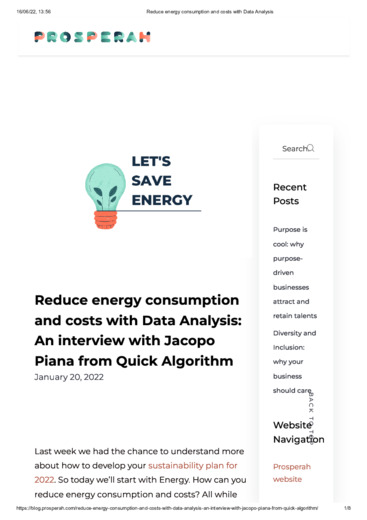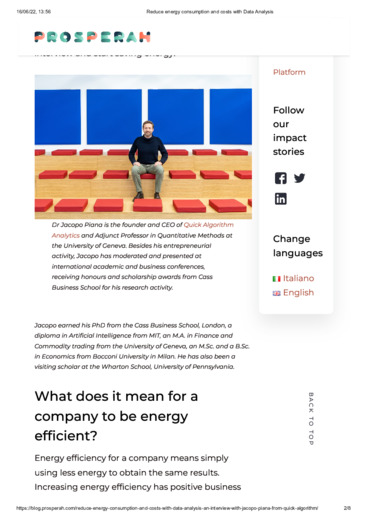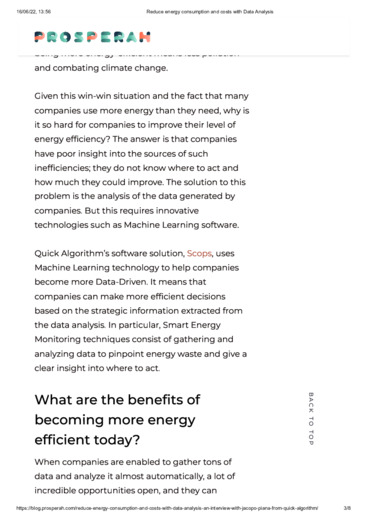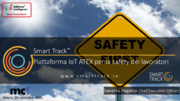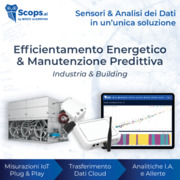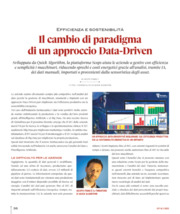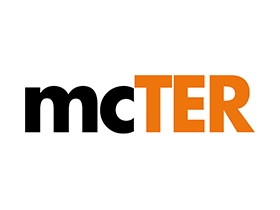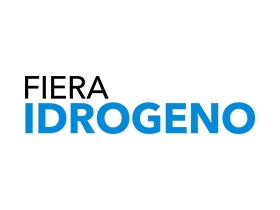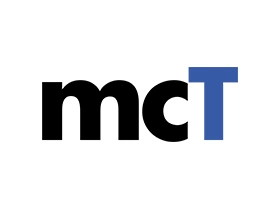Reduce energy consumption and costs with Data Analysis: An interview with Jacopo Piana from Quick Algorithm
Alice Troiano - Quick Algorithm Analytics
What does it mean for a company to be energy efficient? It simply means being able to use less energy to obtain the same results. Increasing energy efficiency has positive business implications because it reduces energy waste and lowers energy costs, up to 15%. To achieve this, Quick Algorithm created Scops for Smart Energy Monitoring with AI & IoT
Q: What does it mean for a company to be energy efficient?
A: Energy efficiency for a company means simply using less energy to obtain the same results. Increasing energy efficiency has positive business and social implications because it reduces energy waste and lowers energy costs. On top of that, being more energy-efficient means less pollution and combating climate change.
Given this win-win situation and the fact that many companies use more energy than they need, why is it so hard for companies to improve their level of energy efficiency? The answer is that companies have poor insight into the sources of such inefficiencies; they do not know where to act and how much they could improve. The solution to this problem is the analysis of the data generated by companies. But this requires innovative technologies such as Machine Learning software.
Quick Algorithm's software solution, Scops, uses Machine Learning technology to help companies become more Data-Driven. It means that companies can make more efficient decisions based on the strategic information extracted from the data analysis. In particular, Smart Energy Monitoring techniques consist of gathering and analyzing data to pinpoint energy waste and give a clear insight into where to act.
Q: What are the benefits of becoming more energy efficient today?
A: When companies are enabled to gather tons of data and analyze it almost automatically, a lot of incredible opportunities open, and they can become more energy-efficient, lower costs, and reduce their pollution. In a nutshell, they can become more sustainable.
Scops uses data and analytics to help companies improve financially and environmentally. And with Smart Energy Monitoring this is as simple as installing the software. The range of insight complexity is big. Companies can either receive a simple alert due to an air-conditioning unit being on when it should be off. Or get a more advanced diagnostics on the anomalous electricity consumption of complex industrial machinery.
Q: Some examples?
A: Our clients saved thousands of euros on energy costs and plant production stops caused by damaged machinery. All thanks to our anomaly detection feature. A client reduced energy consumptions by 3000 kWh per month. The software identified an abnormal absorption in one of the water pumps systems and the engineering team found out that a seal was damaged.
On another occasion, a blackout caused one of the electrical cabinets to fail. But the software had stored the electrical consumption of the previous days, so the company was able to redistribute its energy to other cabinets. Thus avoiding the costs of the power failure.
Similarly, our software found out that the client's compressor temperature was drifting out of an acceptable range of values. The software immediately triggered a power consumption alert. Which enabled the engineering team to discover a loose connector in the machinery. If not treated, this would have caused an electrical failure. Yet, in this case the team could act promptly and avoid compressor's damage.
For a company, such issues can skyrocket the energy costs and consumption, while also making it less sustainable and efficient. Artificial Intelligence can monitor the plant 24/7, and help companies implement Smart Energy Monitoring techniques.
Q: How can AI help companies achieve this ambitious goal?
A: Artificial Intelligence is how a Machine, a software, learns about the world to which it is applied and gives suggestions and recommendations. The technology underpinning Artificial Intelligence is called Machine Learning, which heavily relies on data analysis. Smart Energy Monitoring nowadays can leverage AI to better spot energy waste and suggest possible improvements.
To learn about the subject of its observation, a Machine uses data given either by humans or gathered up on its own. In the case of production companies reducing their energy consumptions, it all comes down to data sets and AI algorithms.
Q: What's Scops all about? How does it work?
A: Companies use machinery for production, and machinery runs on energy to operate. To reduce energy waste, companies want to cut on energy misuse or anomalies. Moreover, they also want to ensure that machinery is always up and running, because downtime can cause an expensive stop in the production line. Both energy meters and the sensors that machinery is equipped with generate a lot of raw data collected into complex data sets. Scops by Quick Algorithm will use its Artificial Intelligence to untangle, clean, analyze, and cross-check data. It will give the company insight into performance by sending real-time diagnostics of the plant machinery and energy consumption.
Scops learns useful information on the plant, like the lifecycle duration of machinery components. And can calculate when a piece of machinery is about to go into downtime. With this kind of insights, a company can anticipate maintenance and avoid shutting down an entire production line. Thus avoiding the risk of generating a lot of additional energy expense needed to re-start it. Moreover, companies can teach Scops the acceptable amount of energy consumption. So, if energy consumption values exceed limits plant managers will be notified and save energy by taking the necessary actions.
Q: Making production more sustainable and less wasteful...
A: By collecting and comparing data on energy consumption, needs, costs, and waste in various sections of the plant, companies can monitor their performance. They can understand which processing technique creates higher consumptions. Or which machinery is inefficient. Which production line consumes more water. Which operation generates more heat needing more energy for the cooling down process, etc. These insights help companies make decisions based on the observation of data, which are fundamental for the development of energy optimisation strategies. Thus making the production process more sustainable and less wasteful.
A: Energy efficiency for a company means simply using less energy to obtain the same results. Increasing energy efficiency has positive business and social implications because it reduces energy waste and lowers energy costs. On top of that, being more energy-efficient means less pollution and combating climate change.
Given this win-win situation and the fact that many companies use more energy than they need, why is it so hard for companies to improve their level of energy efficiency? The answer is that companies have poor insight into the sources of such inefficiencies; they do not know where to act and how much they could improve. The solution to this problem is the analysis of the data generated by companies. But this requires innovative technologies such as Machine Learning software.
Quick Algorithm's software solution, Scops, uses Machine Learning technology to help companies become more Data-Driven. It means that companies can make more efficient decisions based on the strategic information extracted from the data analysis. In particular, Smart Energy Monitoring techniques consist of gathering and analyzing data to pinpoint energy waste and give a clear insight into where to act.
Q: What are the benefits of becoming more energy efficient today?
A: When companies are enabled to gather tons of data and analyze it almost automatically, a lot of incredible opportunities open, and they can become more energy-efficient, lower costs, and reduce their pollution. In a nutshell, they can become more sustainable.
Scops uses data and analytics to help companies improve financially and environmentally. And with Smart Energy Monitoring this is as simple as installing the software. The range of insight complexity is big. Companies can either receive a simple alert due to an air-conditioning unit being on when it should be off. Or get a more advanced diagnostics on the anomalous electricity consumption of complex industrial machinery.
Q: Some examples?
A: Our clients saved thousands of euros on energy costs and plant production stops caused by damaged machinery. All thanks to our anomaly detection feature. A client reduced energy consumptions by 3000 kWh per month. The software identified an abnormal absorption in one of the water pumps systems and the engineering team found out that a seal was damaged.
On another occasion, a blackout caused one of the electrical cabinets to fail. But the software had stored the electrical consumption of the previous days, so the company was able to redistribute its energy to other cabinets. Thus avoiding the costs of the power failure.
Similarly, our software found out that the client's compressor temperature was drifting out of an acceptable range of values. The software immediately triggered a power consumption alert. Which enabled the engineering team to discover a loose connector in the machinery. If not treated, this would have caused an electrical failure. Yet, in this case the team could act promptly and avoid compressor's damage.
For a company, such issues can skyrocket the energy costs and consumption, while also making it less sustainable and efficient. Artificial Intelligence can monitor the plant 24/7, and help companies implement Smart Energy Monitoring techniques.
Q: How can AI help companies achieve this ambitious goal?
A: Artificial Intelligence is how a Machine, a software, learns about the world to which it is applied and gives suggestions and recommendations. The technology underpinning Artificial Intelligence is called Machine Learning, which heavily relies on data analysis. Smart Energy Monitoring nowadays can leverage AI to better spot energy waste and suggest possible improvements.
To learn about the subject of its observation, a Machine uses data given either by humans or gathered up on its own. In the case of production companies reducing their energy consumptions, it all comes down to data sets and AI algorithms.
Q: What's Scops all about? How does it work?
A: Companies use machinery for production, and machinery runs on energy to operate. To reduce energy waste, companies want to cut on energy misuse or anomalies. Moreover, they also want to ensure that machinery is always up and running, because downtime can cause an expensive stop in the production line. Both energy meters and the sensors that machinery is equipped with generate a lot of raw data collected into complex data sets. Scops by Quick Algorithm will use its Artificial Intelligence to untangle, clean, analyze, and cross-check data. It will give the company insight into performance by sending real-time diagnostics of the plant machinery and energy consumption.
Scops learns useful information on the plant, like the lifecycle duration of machinery components. And can calculate when a piece of machinery is about to go into downtime. With this kind of insights, a company can anticipate maintenance and avoid shutting down an entire production line. Thus avoiding the risk of generating a lot of additional energy expense needed to re-start it. Moreover, companies can teach Scops the acceptable amount of energy consumption. So, if energy consumption values exceed limits plant managers will be notified and save energy by taking the necessary actions.
Q: Making production more sustainable and less wasteful...
A: By collecting and comparing data on energy consumption, needs, costs, and waste in various sections of the plant, companies can monitor their performance. They can understand which processing technique creates higher consumptions. Or which machinery is inefficient. Which production line consumes more water. Which operation generates more heat needing more energy for the cooling down process, etc. These insights help companies make decisions based on the observation of data, which are fundamental for the development of energy optimisation strategies. Thus making the production process more sustainable and less wasteful.
Fonte: Interview with Alice Troiano, Co-Founder & CEO of Prosperah, Sustainability startup helping companies align their purpose to the Sustainable Development Goals and make a difference for people, the planet and their business too.
Parole chiave: Internet of things
- Pagano Saverio
- Trans Audio Video
 English
English

